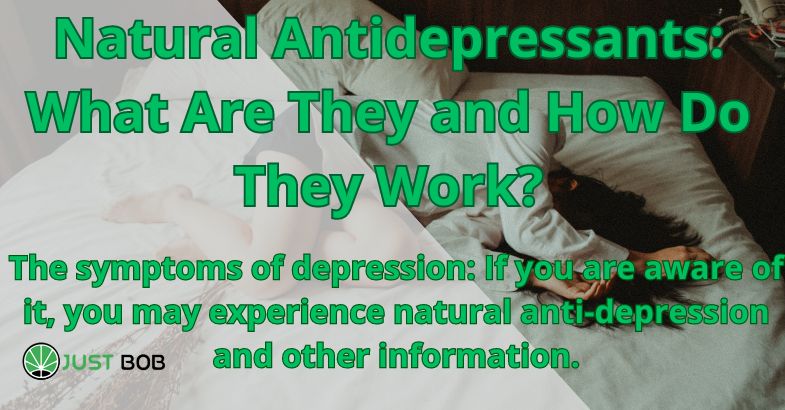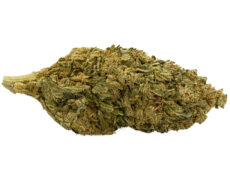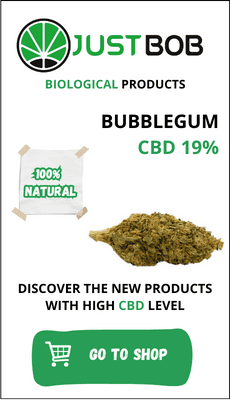Modified on: 26/03/2024
THE SYMPTOMS OF DEPRESSION: IF YOU ARE AWARE OF IT, YOU MAY EXPERIENCE NATURAL ANTI-DEPRESSION AND OTHER INFORMATION.
Depression is a complex illness that affects millions of people worldwide. With the advancement of scientific research, doctors are increasingly suggesting natural antidepressants as an alternative therapeutic option to traditionally used ones.
If you’re interested in this topic and the potential use of CBD in treating depression, continue reading to learn more about natural remedies and how they work! In our article, we’ll also provide valuable information about the positive effects of high-CBD, light cannabis essential oils.
-
 SMALL & BIG
SMALL & BIGBUBBLEGUM
Indoor | CBD – CBDA<22%
Starting from:EASTER SALE -10%
1,25CHF1,10CHF/gGrams3 5 10 20 50 100 -


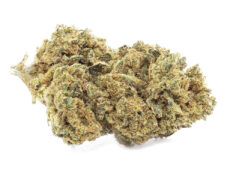
DO SI DOS
Starting from: 2,00CHF/gIndoor | CBD – CBDA < 19%
Grams3 5 10 20 50 100 -


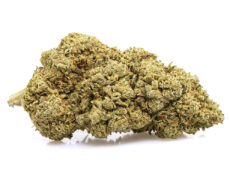
ROYAL GG#4
Starting from: 2,30CHF/gIndoor | CBD – CBDA < 40%
Grams3 5 10 20 50 100 -


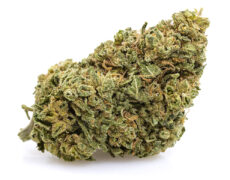
GORILLA GLUE
Starting from: 2,90CHF/gIndoor | CBD – CBDA < 20%
Grams3 5 10 20 50 100
Introduction to the Potential Benefits of Natural Antidepressants
A lot of people are hesitant to use prescription antidepressants due to their potential severe side effects. However, there are natural alternatives that can provide relief for those suffering from depression and anxiety. CBD, a compound found in the cannabis plant, is gaining attention for its potential benefits in mitigating the symptoms of these mental disorders. While research on CBD is still ongoing, it has shown promise in reducing stress and improving mood.
Additionally, CBD is non-psychoactive, meaning it doesn’t produce the euphoria associated with traditional marijuana use. Natural remedies like CBD oil may offer a safer and effective alternative for those struggling with their mental well-being.
A Simple List of Available Natural Antidepressants
St. John’s Wort: It’s one of the most studied herbs for depression. It can increase serotonin, norepinephrine, and dopamine levels in the brain. However, it can interact with certain medications, so consulting a doctor is necessary before use.
Omega-3: These fatty acids can help improve depressive symptoms. They are available in foods like fish and nuts, as well as in supplement form. Side effects may include stomach upset and diarrhea.
CBD: Cannabidiol, or CBD buds, is a compound found in the cannabis plant. It’s non-psychoactive but can help reduce anxiety and improve mood. Side effects may include dry mouth, fatigue, and changes in appetite.
Saffron: Saffron has been shown to improve depression symptoms in some studies. However, it’s expensive and can cause side effects like stomach upset and anxiety.
Exercise: Regular exercise can help release endorphins and increase feelings of well-being. However, it can be challenging for people with severe depression to start exercising.
Aromatherapy: Using essential oils like lavender can help improve mood and calm nerves. Side effects may include headaches and allergic reactions.
Music Therapy: Listening to music can have therapeutic effects, but results may vary depending on individual musical preferences.
Ashwagandha: This herb can help reduce anxiety and stress. However, it can cause side effects like stomach upset, diarrhea, and drowsiness.


Understanding What Natural Antidepressants Are and How They Can Improve Your Mood
Depression is a serious mental condition that affects millions of people worldwide. While pharmacological therapy can be helpful in alleviating most significant depressive symptoms, many individuals are turning to natural remedies to manage their mood disorders. Natural antidepressants can be herbs, foods, or supplements that have been clinically shown to reduce depression symptoms when used correctly. Some popular natural antidepressants include St. John’s Wort, omega-3 fatty acids, and saffron. These natural substances can have a positive impact on brain chemistry by promoting the production of mood-enhancing neurotransmitters such as serotonin and dopamine. However, it’s essential to consult a healthcare professional before taking any natural remedy to ensure they don’t interfere with any current medication or treatment plan. By understanding the benefits of natural antidepressants, you can take control of your mental health and make informed treatment decisions.
Incorporating these natural antidepressants into your daily routine can improve your mood, increase your energy, and lead to a more balanced and positive life.
Different Types of Natural Antidepressants, Including Herbal Therapy, Aromatherapy, Music Therapy, and Exercise
Dealing with anxiety and depression can be a challenging experience, but there are various herbal medicine that can help alleviate symptoms. One of these options is the use of herbal remedies, also known as herbal therapy. Herbal supplement like St. John’s Wort, ashwagandha, or chamomile can be effective in reducing anxiety and promoting relaxation. Another option is aromatherapy, which uses essential oils to enhance mood and calm nerves. Certain scents, such as lavender, rose, and ylang-ylang, are known to have therapeutic effects. Additionally, music therapy has been beneficial for those struggling with emotional distress. Finally, regular physical exercise can also help alleviate depressive symptoms by releasing endorphins and increasing feelings of well-being. By incorporating these natural methods into your self-care routine, you may find relief from anxiety or depression without the need for prescription medications.
Exploring the Role of Omega-3 Fatty Acids and Supplements in controlling Depression and Bipolar Disorder
Major symptoms of depression, often referred to as MDD or simply depression, is a prevalent mental health condition that affects a lot of people worldwide. People with depression often struggle with the debilitating symptoms of depression, such as persistent sadness, loss of interest in activities, and changes in appetite and sleep patterns.
In recent years, researchers have been exploring various treatment options for Major Depressive Disorder, including the use of omega-3 fatty acids. Commonly found in fish oil and certain foods, are believed to have potential benefits for those with depression. These essential fatty acids may help reduce the risk of depression and alleviate some of the symptoms of depression, making them a promising avenue for research.
Bipolar disorder, a condition closely related to depressive disorder, is characterized by mood swings that alternate between manic and depressive episodes. Omega-3s have also been investigated as a potential adjunctive therapy to help stabilize mood in individuals with bipolar disorder. While they may not replace traditional treatments, they may help in managing the condition.
In addition to omega-3s, people with depression turn to herbal and other supplements as a complementary approach to treating their symptoms. These supplements, while not a substitute for antidepressant medication, may help in alleviating certain aspects of depression when used in conjunction with medically reviewed treatment plans.
It’s essential to note that while omega-3 fatty acids and herbal and dietary supplements may offer some relief and support, they do not treat depression in isolation. For individuals with major depressive disorder or bipolar disorder, it’s crucial to consult with a healthcare professional to develop a comprehensive treatment strategy that may include antidepressant medication alongside these potential complementary approaches.
In conclusion, the management of major depressive disorder and bipolar disorder may involve a multifaceted approach. Omega-3 fatty acids, along with herbal and
supplements, may give assistance to reduce the risk of depression and contribute to symptom relief. However, these options should be considered in conjunction with other evidence-based treatments, such as antidepressant medication, to effectively address the complex challenges of these depressive disorders.
Identifying Which Type of Natural Antidepressant Is Best for Your Needs
With the growing popularity of herbal medicine medically reviewed, it’s not surprising that more people are turning to alternative treatments for conditions like depression. One such treatment gaining attention is high-CBD flower, light cannabis products. However, identifying which type of natural antidepressant is best for your needs can be overwhelming. Consulting a medical professional and conducting thorough research on the potential benefits and side effects of each option is essential. While these herbal medicine may not work for everyone, it’s worth exploring different options to find what works best for you.
The Most Well-Known Natural Antidepressant
When it comes to natural antidepressants, a lot of people with depression turn to St. John’s Wort as a first-choice remedy, also to treat depression. This plant has been used for centuries as a treatment for depression and anxiety, and numerous studies have shown that it is as effective as prescription antidepressants for mild to moderate depression. St. John’s Wort works by increasing serotonin, norepinephrine, and dopamine levels in the brain, which are neurotransmitters that play a key role in mood regulation. While it is generally safe, it can interact with certain medications, so it’s essential to consult your doctor before adding St. John’s Wort to your antidepressant regimen. Overall, St. John’s Wort is a natural option to consider for those seeking relief from depression and depressive disorders.
The Most Potent Natural Antidepressant
When it comes to natural antidepressants, Griffonia simplicifolia, a plant native to West Africa, is often considered one of the most potent options available. This plant contains an amino acid called 5-HTP, which can be converted in the brain into serotonin, a key neurotransmitter that regulates mood. Numerous studies have shown that 5-HTP can give assistance to reduce depression symptoms, or bipolar disorder, especially when used in combination with other drugs like therapy or exercise. However, as with all natural antidepressants, it’s crucial to consult a healthcare professional before starting to use Griffonia simplicifolia to ensure it is safe and suitable for your specific mental health needs.


Purchasing Natural Products to Address Depression: The Importance of Preventive Action
The purchase of natural products for managing depression has generated increasing interest and has proven to be a vital step for many individuals. These products represent a natural way to address the challenges of many disorders. However, it’s essential to understand the importance of this step. It’s not just about buying products; it’s about comprehending their role in addressing the disease on a systemic level. Nature offers an abundance of remedies that can contribute to balancing neurotransmitters in the brain and promoting an overall sense of well-being. But it’s important to remember that these products should be integrated into a comprehensive approach to mental health, which may include therapy, physical activity, and a balanced diet.
How to Naturally Improve Your Mood
Naturally improving your mood is a process that involves taking care of both your body and mind. Adopting a healthy lifestyle can have a significant impact on your mood and overall quality of life. For example:
Folic Acid and Vitamin C: These B-group vitamins are essential for the proper functioning of the central nervous system and maintaining a positive mood. Deficiencies in these vitamins can lead to many disorders such as depression.
Diet: A balanced and nutrient-rich diet can help improve mood. Many foods, like fruits, vegetables, and whole grains, contain active compounds that support the immune system and overall bodily function. Purchasing fresh and natural foods can significantly impact your mood.
Physical Activity: Regular exercise is part of a natural approach to boosting mood. Exercise releases endorphins, often described as the body’s natural “antidepressants,” which can help combat sadness and apathy.
Meditation: Practicing meditation regularly can give assistance to reduce stress and promote a sense of calm and inner well-being, thereby improving mood.
Dietary Supplements: For many people these products can be helpful. S-Adenosyl, for example, has shown antidepressant action in some studies. It is a natural compound that may be useful in treating various mood disorders.
In the plant category, Griffonia simplicifolia has shown a high degree of effectiveness in treating depression. This plant, native to Africa, is rich in 5-HTP, a precursor to serotonin, a key neurotransmitter that regulates mood.
However, it’s important to remember that there is no one-size-fits-all solution for depression or other many disorders. What works for one person may not work for another. Consulting a mental health professional can help identify the most suitable treatment options for your individual needs.
Conclusion
While prescribed antidepressant medications remain a valid treatment option for many people, there are multiple natural approaches that can be used in combination with or as alternatives to traditional medications. Regardless of the path you choose, it’s important to remember that taking care of your mental well-being is an act of self-love and self-respect. No matter how dark it may seem right now, there are always resources and support available to help you find the light again.


